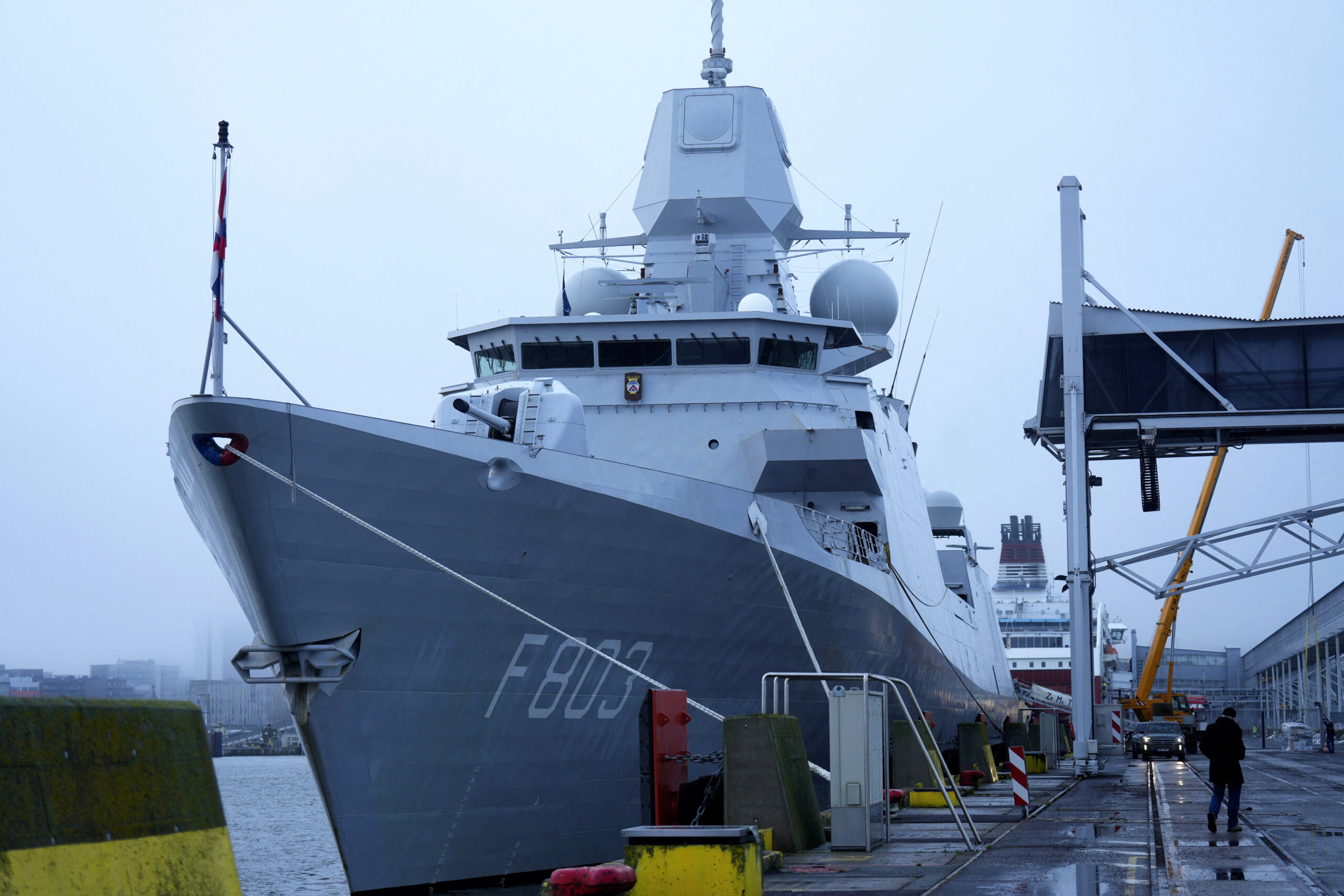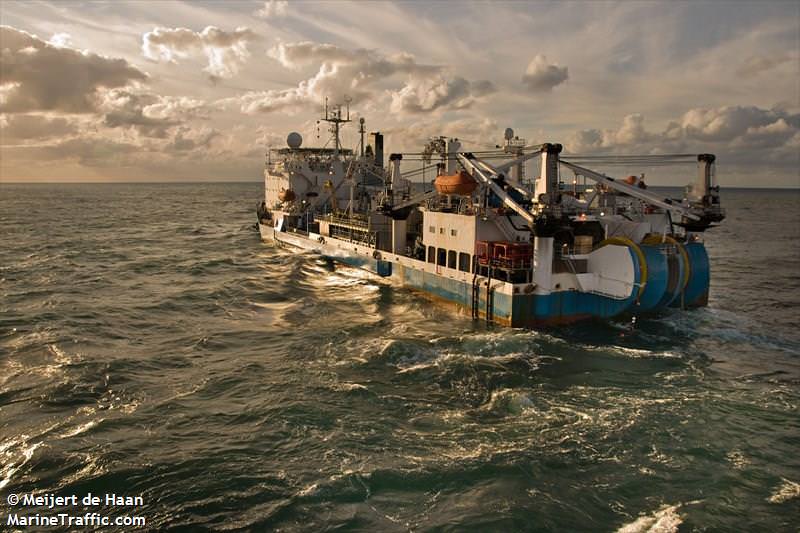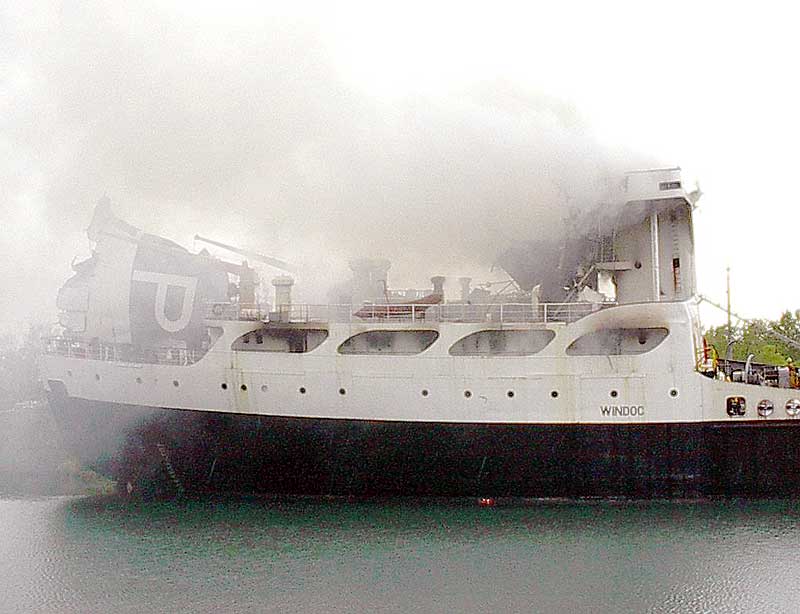Updated: February 5, 2026 (Originally published February 2, 2008)
Submarine cables world map. Click here for full-size version (Graphic: Telegeography.com)
Sea-Fever‘s Peter Mello submitted the following story to our Maritime News Discoverer;
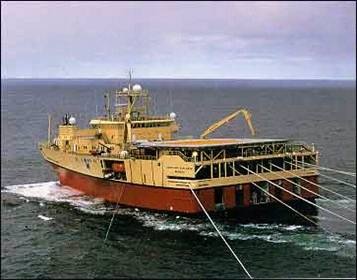 A flotilla of ships may have been dispatched to reinstate the broken submarine cable that has left the Middle East and India struggling to communicate with the rest of the world, but it took just one vessel to inflict the damage that brought down the internet for millions.
A flotilla of ships may have been dispatched to reinstate the broken submarine cable that has left the Middle East and India struggling to communicate with the rest of the world, but it took just one vessel to inflict the damage that brought down the internet for millions.
According to reports, the internet blackout, which has left 75 million people with only limited access, was caused by a ship that tried to moor off the coast of Egypt in bad weather on Wednesday. Since then phone and internet traffic has been severely reduced across a huge swath of the region, slashed by as much as 70% in countries including India, Egypt and Dubai.
While tens of millions have been directly affected, the impact of the blackout has spread far wider, with economies across Asia and the Middle East struggling to cope. Governments have also become directly involved, with the Egyptian communications ministry imploring surfers to stay offline so business traffic can take priority. “People who download music and films are going to affect businesses who have more important things to do,” said ministry spokesman Mohammed Taymur. Continue Reading At The Guardian…
Chart Of The Cable
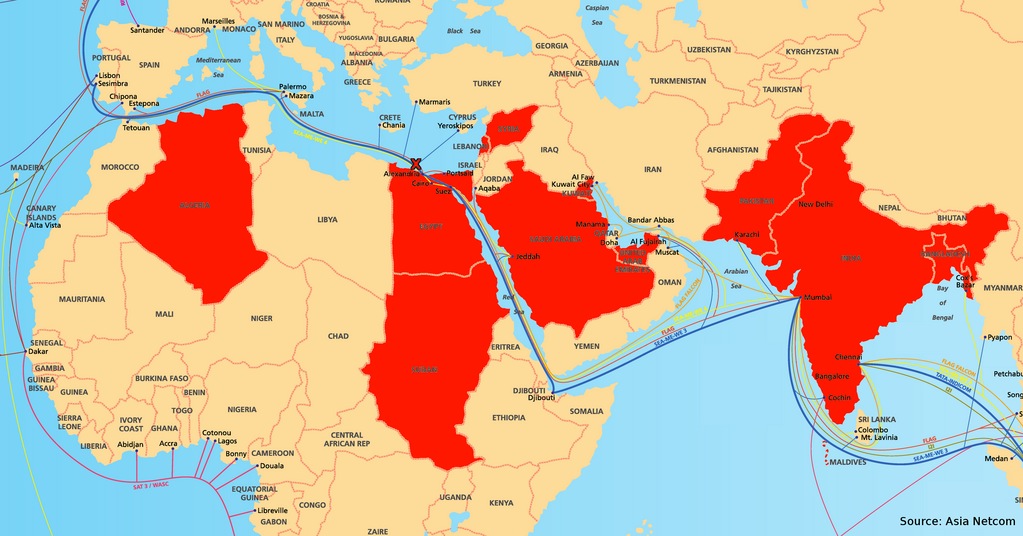
Graph Of Affected Areas
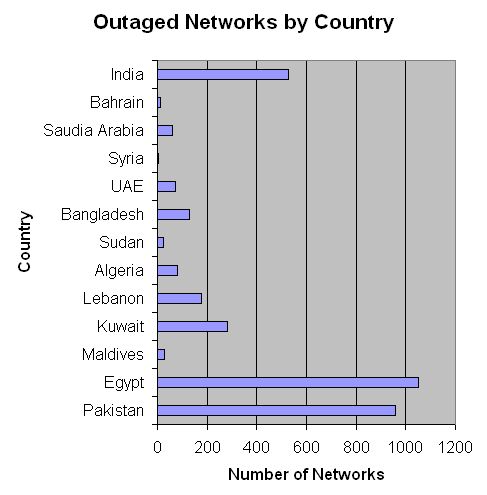
(Source: Renesys)
UPDATE: 2nd Cable Reported Cut
The BBC Tells Us:
The first cable – the Fiber-Optic Link Around the Globe (FLAG) – was cut at 0800 on 30 January, the firm said.
 |
INSIDE A SUBMARINE CABLE
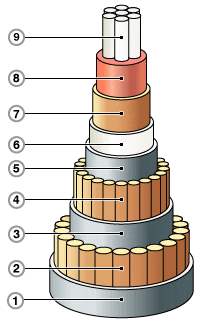
1 Polyethylene cover
2,4 Stranded steel armour wires
3,5 Tar-soaked nylon yarn
6 Polycarbonate insulator
7 Copper sheath
8 Protective core
9 Optical fibres
Not to scale
|
A second cable thought to lie alongside it – SEA-ME-WE 4, or the South East Asia-Middle East-West Europe 4 cable – was also split.
FLAG is a 28,000km (17,400 mile) long submarine communications cable that links Australia and Japan with Europe via India and the Middle East.
SEA-ME-WE 4 is a submarine cable linking South East Asia to Europe via the Indian subcontinent and the Middle East.
The two cable cuts meant that the only cable in service connecting Europe to the Middle East via Egypt was the older Sea-M-We 3 system, according to research firm TeleGeography.
The firm said the cuts reduced the amount of available capacity on the stretch of network between India and Europe by 75% percent.
As a result, carriers in Egypt and the Middle East re-routed their European traffic around the globe, through South East Asia and across the Pacific and Atlantic oceans. Continue Reading…
Related Links:
UPDATE 2:
The AP is reporting: Ships did not cut internet cable
Editorial Standards · Corrections · About gCaptain

 Join The Club
Join The Club




 A flotilla of ships may have been dispatched to reinstate the broken submarine cable that has left the Middle East and India struggling to communicate with the rest of the world, but it took just one vessel to inflict the damage that brought down the internet for millions.
A flotilla of ships may have been dispatched to reinstate the broken submarine cable that has left the Middle East and India struggling to communicate with the rest of the world, but it took just one vessel to inflict the damage that brought down the internet for millions.



